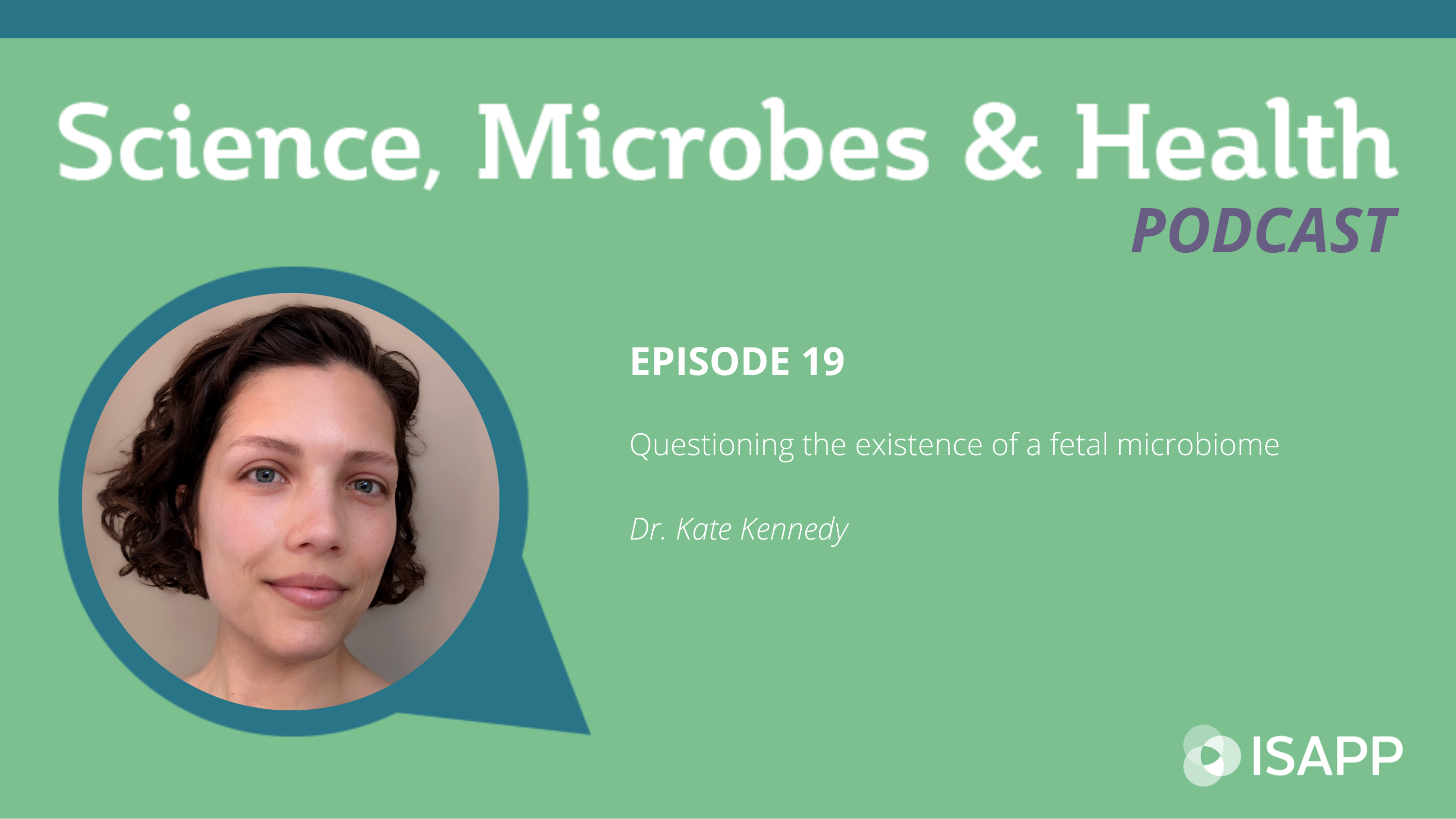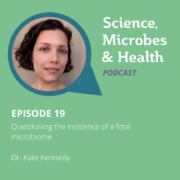Episode 19: Questioning the existence of a fetal microbiome

Podcast: Play in new window | Download
Subscribe: Apple Podcasts | Spotify | RSS
The Science, Microbes & Health Podcast
This podcast covers emerging topics and challenges in the science of probiotics, prebiotics, synbiotics, postbiotics and fermented foods. This is the podcast of The International Scientific Association for Probiotics and Prebiotics (ISAPP), a nonprofit scientific organization dedicated to advancing the science of these fields.
Questioning the existence of a fetal microbiome, with Dr. Kate Kennedy
Episode summary:
In this episode, the ISAPP podcast hosts tackle the debate on the existence of a fetal microbiome, with guest Kate Kennedy PhD of McMaster University in Canada. They talk about Kennedy’s recent co-first-authored paper in Nature, which concludes that it is not biologically plausible that the fetus harbors live microorganisms, and that previous microbial sequencing studies on the fetal microbiome did not account for the many sources of contamination.
Key topics from this episode:
- During the last 10 years, a lively debate has emerged on whether humans harbor living microorganisms prior to birth. Some scientists have looked at fetal and placental tissues and amniotic fluid, and have ostensibly detected microbial DNA. But those results are being questioned, with the argument that the signals being found are not biologically plausible.
- Kennedy et al. published an article in Nature that re-analyzed data and brought in experts from different related fields to help interpret the data. The conclusion is that the fetal microbiome does not exist. Previous studies have likely seen contamination during sampling, since it’s nearly impossible to collect samples in a sterile way following vaginal delivery; contamination can happen at different stages so stringent controls are needed across all these areas of potential contamination. Furthermore, live microorganisms in the fetus does not fit with what we already know in related fields of science.
- The popularity of microbiome research may have made scientists interested in this topic, although sequencing by itself may not be sufficient to settle the question of whether a fetal microbiome exists.
- Human cells have Mitochondrial DNA, which is bacterial in origin. In 16S rRNA gene sequencing, there is some overlap in what is amplified, and this could include mitochondrial DNA, giving misleading results. This was not accounted for in some of the initial fetal microbiome studies.
- Bringing together disparate disciplines is inherently challenging. It’s very important to work to understand each other and understand the host and biological situation you’re dealing with.
- If there were even small numbers of bacteria present in the fetus it would have huge implications for our understanding of fetal biology and immunology. One question would be: how is the fetus limiting growth of any microbes it harbors?
- Despite the likelihood that the fetal microbiome does not exist, the fetus is not unprepared for the microbial onslaught after birth. The maternal microbiota and immune system can educate the fetus immunologically in the absence of fetal colonization.
Episode abbreviations and links:
- Kennedy, et al. paper published in Nature: Questioning the fetal microbiome illustrates pitfalls of low-biomass microbial studies
- Kennedy refers to two papers in 2021 with differing conclusions: Fetal meconium does not have a detectable microbiota before birth and Microbial exposure during early human development primes fetal immune cells.
About Dr. Kate Kennedy:
Kate completed her PhD on the role of the maternal gut microbiome in perinatal programming in the lab of Dr. Deborah Sloboda at McMaster University. She previously completed her BSc and MSc in Biology at the University of Waterloo. Her research explores host-microbiome relationships in pregnancy, early-life, and aging to understand their role in modulating health and disease risk.





